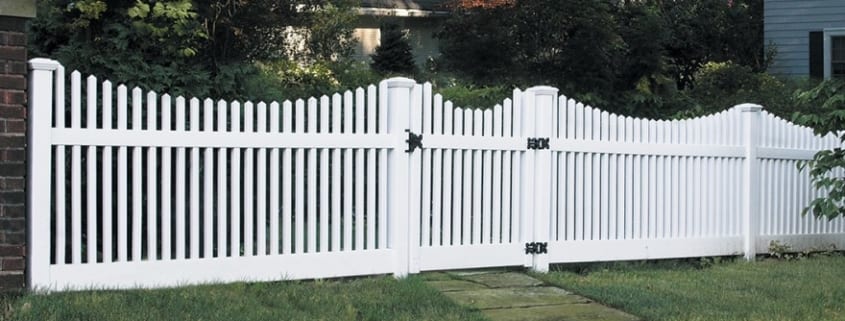
Fence Maintenance
Fence maintenance is a priority for keeping your fences in good condition and prevent them from breaking down or rotting depending on the materials the fence is made of. Some fence types are less maintenance intensive than others, allowing you to spend less time cleaning and maintaining them. While fence maintenance is necessary, there are routes you can take to make maintaining your fence line as simple and quick as possible.
Vinyl Fence Maintenance
Vinyl fencing has become increasingly more popular over the last 5 to 10 years. This is largely due to the fact that vinyl fences are much more durable and long-lasting than traditional fencing options such as wood. Vinyl fences are likely the least maintenance intensive fencing option on the market today. One of the main benefits to vinyl fencing is that it maintains it color very well and does not require yearly painting or staining. Vinyl also does not rust or decompose like other fencing options. Vinyl fences are also much more flexible than wood fences, and are capable of bending more without snapping or breaking, making required repairs minimal. The main thing to consider with vinyl fence maintenance is cleaning, which can easily be done with household materials. With proper care, a vinyl fence should require very little cleaning and next to no maintenance for the lifetime of the fence.
Aluminum Fence Maintenance
Aluminum Fences are another low maintenance option. Offering similar looks to traditional wrought iron fences, without the painstaking upkeep. Unlike wrought iron fences, aluminum fences do not rust. Aluminum fences also do not require regular painting or staining. The majority of the maintenance you are looking at with an Aluminum Fence is limited to occasional washing of the fence. All in all, aluminum fences, alongside vinyl fences, are the lowest maintenance options in the fencing world.
Wood Fence Maintenance
Wood fences, while traditional and often beautiful, are a maintenance nightmare. These fences will almost always require yearly, or even seasonal, painting or staining in order to maintain their color. Wood fences are also very rigid, which leads them to be more likely to snap or break in high winds or when impacted, leading to costly repairs. Wood fences also have a variety of other maintenance concerns such as termites, rot, warping, and other natural damages. While wood fences are often the cheapest option up front, they are often the most costly in the long term due to the high amount of maintenance and repair required.
Wrought Iron Fence Maintenance
Wrought Iron fences require much less maintenance than a wooden fence, however are still more maintenance intensive than vinyl or aluminum fencing options. The main issue you will run into with wrought iron fences is rust. Rust is a near inevitability with this type of fencing and must be taken care of properly or it could weaken the entire fence. Removing rust is a high maintenance task that often involves removing the rust from the fence with the use of a wire brush, sanding the area of the fence, removing any peeling paint, priming the fence, and repainting the fence. While wrought iron fences are extremely durable overall, this particular weakness, combined with the high upfront cost of wrought iron fences, often make aluminum fences a more attractive option for customers.
